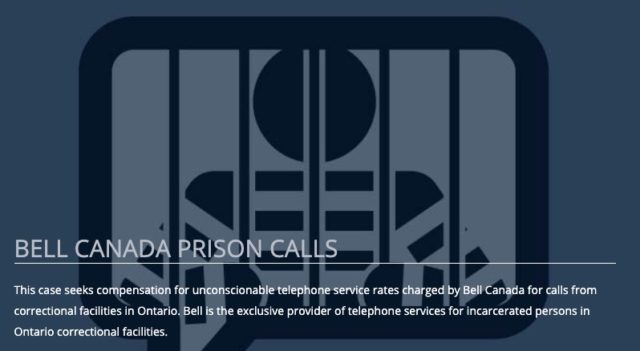
Bell and Ontario Remain Silent on Profits from Inmate Phone Calls
A recent report reveals that neither Bell nor the Ontario government is willing to disclose the profits they made from a jail phone system that charged what has been described as “exorbitant” rates for inmate calls from 2013 to 2021.
The Offender Telephone Management System, operated by Bell, only allowed inmates to make collect calls at significantly higher rates than those in other provinces, reports Global News.
According to a recent Appeal Court decision, local calls were charged at a flat rate of $1, while long-distance calls cost about $1 per minute, plus a $2.50 connection fee. This led to a proposed class-action lawsuit against Bell and the province, with plaintiffs alleging that the high phone rates exploited inmates and their families.
Vanessa Fareau, a former inmate and representative plaintiff, expressed her outrage at the profits generated from the phone calls, saying, “Most people are calling their loved ones…their loved ones didn’t commit a crime…and this is who ends up paying for these phone bills and having to go into debt, having to struggle financially.”
Ontario’s provincial government received a commission on the money Bell made from the calls, but declined to provide the amount collected or explain why it collected a commission. The proposed class-action lawsuit seeks more than $150 million in damages and restitution equal to the money paid by those affected.
“The provincial government sets the terms of service for the calling system provided in Ontario correctional facilities,” said a Bell spokesperson in a statement.
Ransome Capay is an Indigenous man whose son Adam Capay was incarcerated in solitary confinement in northern Ontario prisons, over a four-year span. During this time, Ransome consistently communicated with his son, even though the collect call charges resulted in phone bills ranging from $250 to $500, sometimes even exceeding $1,000, as revealed in his affidavit.
Living in the Lac Seul reserve, Ransome described how his son was detained in Kenora and Thunder Bay. He emphasized that the sole method of keeping a fundamental line of contact with his son throughout the four and a half years of solitary confinement was via phone calls.
Lawyer David Sterns said he and his team will pursue the case to the end, regardless of the venue, adding, “The telephone lines are a lifeline for prisoners’ mental health…and Bell could effectively charge them whatever they wanted to charge them and they would still have demand because when you’re desperate, you pay whatever you have to pay.”
The Ontario government has since made changes to the phone system, including lower rates, as part of modernizing the justice system.
The class action lawsuit was first brought forward in February 2020, alleging Bell of charging “exorbitant fees” for prison calls.


